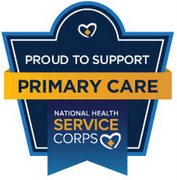
Pot and pregnancy can be a dangerous combination
The legal use of marijuana is growing, with three U.S. states and the District of Columbia now endorsing legal marijuana use. An additional 21 states allow use of medical marijuana under physician prescription and supervision.
The brain is a sensitive organ vulnerable to a variety of insults. This is particularly true during periods of brain development from conception through adolescence. Studies of pot’s effect on adults cannot be generalized to pregnant women, children or adolescents.
This growing trend for marijuana legalization has not come without a variety of emerging adverse consequences. A recent review of the unexpected adverse health effects of marijuana legalization in Colorado found a spike in marijuana-related burns and increased emergency room visits related to high tetrahydrocannabinol (THC) levels and vomiting.
Children have also been vulnerable to growing environmental exposure to pot. Legalization of marijuana in Colorado has resulted in a spike in emergency room and hospital admissions related to children accidentally ingesting edible THC products. Concern regarding pot and children extends to pregnancy and the developing fetal brain. Despite growing acceptance of marijuana in adults, very little is known about the effect of pot exposure during pregnancy.
What we do know is unsettling. Pot use by pregnant mothers, or second-hand exposure to smoked marijuana, leads to fetal exposure as the active ingredients in pot cross the placenta barrier. Pot contains chemicals related to natural chemicals involved in fetal brain development. Normal fetal brain development requires a precisely-timed, specific-dose exposure to unique chemical signals. Chemicals in pot may disrupt this process and lead to abnormal development and to abnormal migration of fetal brain cells.
Research into fetal pot toxicity is very much in an early stage. What we know is much less than what we don’t know. Given the potential for fetal brain toxicity with pot it is best to err on the side of caution. General medical consensus exists that pot should be avoided during pregnancy.
Pot-smoking female adolescents and women who are considering pregnancy need to stop the use of marijuana. If this can’t be accomplished on their own, they should find an addiction specialist or treatment center that can provide expert care.
Click here to read the article in Addiction.com.
A new study
A new study published this week in the Journal of the American Medical Association (JAMA) reports that 7 percent of pregnant women use marijuana during pregnancy based on health surveys involving nearly 500,000 U.S. women. Pot use during pregnancy has doubled since 2002, research shows. Dr. Nicole Saphier warns that pot and pregnancy can be a dangerous combination.
The purpose of the study was to determine if there was an increase in marijuana use among pregnant women, as we are witnessing a rising number of states where marijuana has been legalized for medical and recreational use.
Marijuana is the most commonly used illicit drug during pregnancy. Based on 467,100 respondents surveyed between 2002 and 2017, the prevalence of daily cannabis use increased among pregnant (and non-pregnant) women ages 12 to 44 years. It was also higher among women in their first trimester of pregnancy, which is a crucial time in fetal development.
Because of concerns regarding impaired fetal development, as well as maternal and fetal exposure to the adverse effects of smoking, women who are pregnant or contemplating pregnancy should discontinue recreational marijuana use and discuss the potential risks with their doctor if using it for medicinal purposes.
Many organizations and growing numbers of elected officials – including Democratic presidential hopefuls Sens. Cory Booker of New Jersey and Elizabeth Warren of Massachusetts – are pushing for marijuana for legalization.
In light of this concerning trend, it is would be bordering on negligent to not issue warnings about the safety of marijuana use during pregnancy. The drug has the proven potential to restrict fetal growth as well as to impair childhood mental functions such as memory, verbal skills and emotional development.





